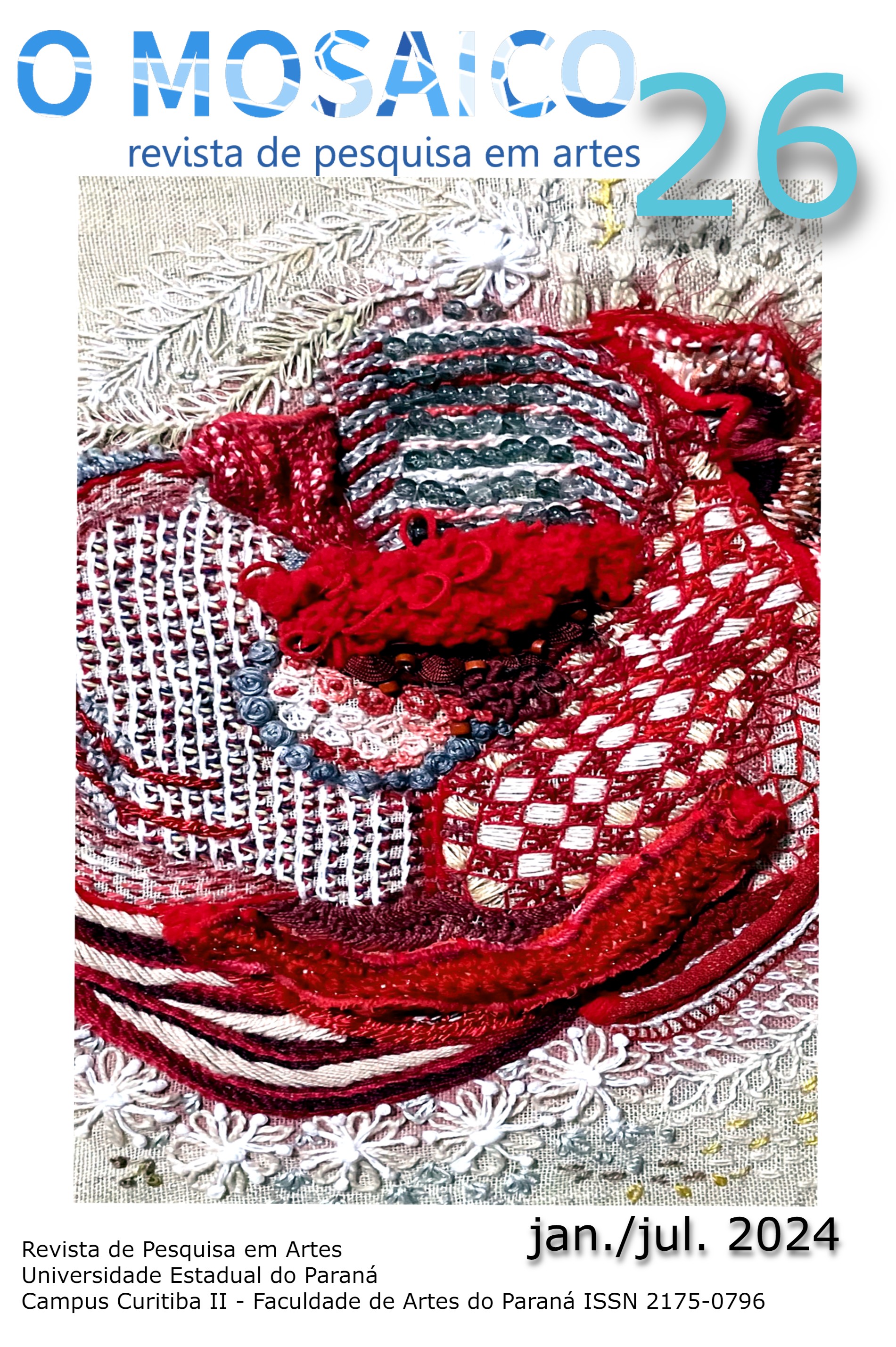A A DIVERSIDADE EM UMA ESCRITA DESCOLONIZADORA DE PARTITURA PARA A CENA COM BASE NO CONCEITO BRASILEIRO DA MACRO-HARMONIA
DOI:
https://doi.org/10.33871/21750769.2024.18.1.9314Palavras-chave:
Macro-harmonia ; Sonoplastia ; Partitura ; Diversidade ; DecolonialidadeResumo
Congregar toda a diversidade de narrativas dos elementos que constituem uma encenação dentro de um mesmo grau de relevância em um plano gráfico unificador o suficiente para que elas possam ser registradas, analisadas e reencenadas é de fato um grande desafio. Nesta jornada pioneira alguns aprendizados foram fundamentais. A descoberta da possibilidade para transdução do sistema de harmonia funcional foi providencial, porque trouxe para a abordagem da encenação todo um sistema de registro e análise eficiente, objetivo e concreto, ao qual foi possível agregar elementos não contemplados na partitura musical tradicional, os elementos não acústicos. Já a ideia de uma elasticidade da performance e a adoção do tempo como eixo horizontal foram essenciais para que a partitura conseguisse expressar simultaneamente a evolução das narrativas de elementos com naturezas diversas, como a narrativa da música, da luz, do figurino, da expressão corporal, do texto falado e interpretado, entre outras. No texto são apresentados novos conceitos como marco cênico, cenário sonoro, foco sonoro, pleonasmo sonoro, e macro-harmonia. Por fim, a partitura da cena aqui proposta deve ser vista como uma ferramenta que foi testada em dezenas de montagens teatrais durante décadas, passando por constantes análises e aprimoramentos, sempre motivados por questões surgidas nos palcos. Ela se apresenta como uma proposta, uma possibilidade, um início de debate, e não um encerramento da questão.
Downloads
Downloads
Publicado
Como Citar
Edição
Seção
Licença
Copyright (c) 2024 O Mosaico

Este trabalho está licenciado sob uma licença Creative Commons Attribution-NonCommercial-ShareAlike 4.0 International License.
Os autores detém os direitos autorais, ao licenciar sua produção na Revista O Mosaico/FAP, que está licenciada sob uma licença Creative Commons. Ao enviar o trabalho,e mediante o aceite, o autor cede seus direitos autorais para a publicação na revista. Osleitores podem transferir, imprimir e utilizar os artigos publicados na revista, desde que hajasempre menção explícita ao(s) autor (es) e à Revista O Mosaico/FAP não sendo permitidaqualquer alteração no trabalho original. Ao submeter um artigo à Revista O Mosaico/FAP e após seu aceite para publicação os autores permitem, sem remuneração, passar osseguintes direitos à Revista: os direitos de primeira edição e a autorização para que aequipe editorial repasse, conforme seu julgamento, esse artigo e seus meta dados aosserviços de indexação e referência.


